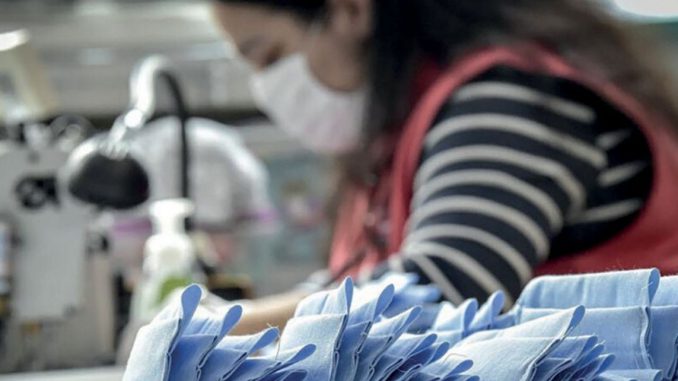
It is too early to pronounce, but, according to the General Manager of the Moroccan Association of the Textile Clothing Industry, the machine is well on its way for the sector: the re-establishment of the rules of competition and the great desire for investment displayed by the operators should be enough to win the bet.
How can industrialists accustomed to exporting be encouraged to launch into projects for the domestic market? This is the crazy bet that the Ministry of Industry, Trade and the Green and Digital Economy has set itself! The Moulay Hafid Elalamy department has, indeed, included textile-clothing among the 9 sectors of activity on which it is betting in its plan to accelerate the domestic market. The professionals adhere to the approach. They have proposed several projects, 18 of which have been retained, and “already show the firm determination to fight against the Turkish and Chinese waves whose products are invading the Moroccan market”. According to Fatima Zahra Alaoui, the General Director of the Moroccan Association of the Textile Clothing Industry (AMITH), “we are leaving with certain favours. We are at home, the competitive environment is going to change a lot, we are tackling a new very promising niche and the manufacturers are all ready to invest”.
Competitive balance soon to be restored.
Indeed, the competitive balance will soon be restored or almost restored. The common export duties on finished industrial products, including textiles, will soon rise to 40%. This will be notably as soon as the 2021 Finance Bill comes into force, currently at the end of the adoption process. It should be noted that in just a few months, this tax has reached record levels. It has in fact successively gone from 25% in the 2020 Finance Act to 30% in the amended Finance Act before rising to 40%. As far as Turkish textile products are concerned, they will now be taxed at 36% (17.5% for home textiles), in accordance with the hard-fought results obtained by the supervisory ministry. That is not all! In addition to this tariff protection, the industrialists will have the opportunity to realise a long-held dream. It is that of finally being able to position themselves upstream of the clothing industry (spinning, weaving, knitting, dyeing, printing…), and to manufacture products that will reinforce the local added value. It is on this objective that they have agreed with their tutelage.
Among the 18 import substitution projects that will be developed, “all of which are based on an eco-responsible approach”, emphasises Fatim Zahra Alaoui, 12 are positioned in this niche. They will require a global investment of around 2.990 MMDH and all seem very promising. Let’s take two examples. Firstly, the “Tissage Denim” project, a fabric made of cotton or cotton threads mixed with synthetic fibres of different colours, used for the manufacture of jeans. Jeans are made using weaving machines. It is usually dyed and woven by the same unit. This project was selected by the Ministry because the market is attractive in the fast fashion niche, where it has experienced significant growth in recent years, particularly in women’s clothing. It allows an ideal positioning on the mid-range segment where professionals can easily launch a price competition. And this, without forgetting the important export potential to Europe and the United States. According to the Ministry, this project will require a potential investment of 150 to 250 MDH. It could generate a turnover of 50 to 200 MDH; and a net profit of 10% to 20%. Another example: the “Combed and carded blended cotton spinning mill” project. It concerns the spinning of cotton yarns in combed fibres, synthetic staple fibre yarns and packaged cotton sewing threads. These yarns go through a spinning process, which is the first step in the transformation of cotton into an intermediate textile product. It is then used in the design of finished products (e.g. jumpers, winter clothing). This project was also selected by the Ministry because it is an opportunity for environmentally friendly units representing a strong demand for export, especially in the mid-range. And because a third of consumers in the main European markets take the sustainable factor into account when making their purchases.
In addition to these very favourable arguments, manufacturers are pumped up to the max. According to AMITH’s director-general, “they show a great deal of willingness to invest”.

Be the first to comment